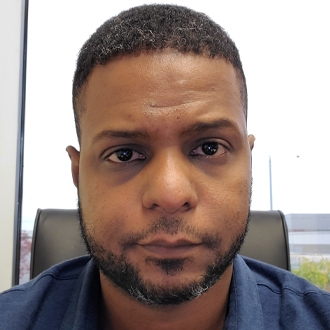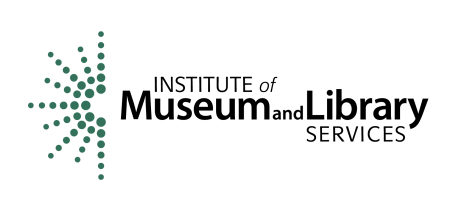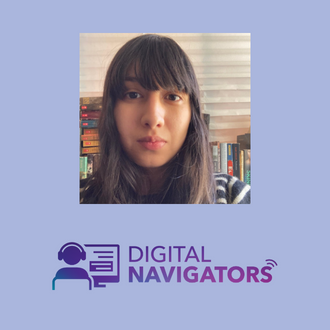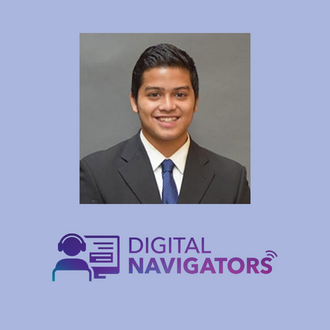Digital Navigator Profile: Ali F. Abid
Q&A with Ali F. Abid, Salt Lake City Digital Navigator

Now being piloted by Salt Lake City Public Library and the National Digital Inclusion Alliance, the Digital Navigators service model positions trained individuals to provide phone-based support for issues related to the full spectrum of digital needs.
ULC is connecting with Digital Navigators for one-on-one discussions of their work on the forefront of this exciting new initiative. Read the fifth interview in this series below, featuring Ali F. Abid.

Q&A with: Ali F. Abid
Digital Navigator and Digital Equity Specialist, Catholic Community Services, Utah
Ali F. Abid moved to Utah from Iraq in September 2012. He came to the U.S. as a refugee after living two and a half years in Turkey as a median country before resettling finally in the United States. Ali has a bachelor's degree in computer science from the University of Baghdad. He has been with the Catholic Community Services since June 2015, where he started as a job developer after serving as a volunteer. Ali loves art, animals, city sights, visiting new places and making new friends and is passionate about helping people.
Educating others and teaching them technology is like teaching someone how to read and write because it is just as important.
Why is this work especially critical right now?
We live in a digital era where everything around us is run by technology and artificial intelligence: communication, online banking and many daily use machines that operate with technology. Adding to that culture shift, the COVID-19 pandemic has made it so that people are relying even more on technology than ever before.
Yet, even though technology is everywhere, people are not all at the same level when it comes to technology knowledge or "digital culture." Digital Navigators are so important because of that inequity (as well as many other reasons!).
In Salt Lake City specifically, the city has experienced rapid growth and has become more diverse in recent years. Strengthening SLC's digital culture and equity is critical for keeping up with the changing needs of our residents.
How has this work changed your perception of the role of libraries in meeting digital needs?
In my previous role with the Catholic Community Services as a job developer, I always felt the need to assist the community we serve with digital literacy in a way that would enable them to benefit from the use of technology. Since I've become a Digital Navigator, all my time now is dedicated to educating community members on how to be better technology users.
Almost everyone I work with has at least one smartphone and knows how to surf the internet, but this work has shown me that many people still need help learning key skills for making the most out of digital resources. The good news is — the library and Digital Navigators are available to help!
How do you explain your daily work as a Digital Navigator in your own words?
Put simply, Digital Navigators look for what our clients want to do with technology and help them build the skills needed to meet their goals. Common goals include seeking employment, getting comfortable with online banking, accessing online information regarding employment, engaging in online schooling and navigating government websites regarding benefits (e.g., Department of Workforce Services eligibility, official Immigration status and related documents).
If someone asked me to explain my role as a Digital Navigator, I would ask them to first describe what challenges they frequently face on a daily basis regarding technology. Digital Navigators assist with the full range of digital challenges, so it is important to explain the work in a way that is relevant to an individual's experience.
Can you share an example of feedback or an experience from this work that has been meaningful to you?
For many of my clients, I have been able to make the biggest difference not by teaching skills directly, but by showing people where to find helpful online resources based on their specific goal.
As one example, I had a client who needed a digital device to start a business but he lacked knowledge on how to gather information and where to begin searching. By referring him to score.org, which is a website that belongs to the Small Business Administration, I was able to connect him with several helpful resources for gathering information to start a business.
Another client wanted to improve her English, so I referred her to the City Library's website where she was able to access language-learning services online like Mango. Another client had a goal of going back to school to finish a degree, but he was concerned by his current proficiency with math. I referred him to khanacademy.com where he was able to access robust resources to learn math.
What tips do you have for other Digital Navigators or library systems who are just getting started with this work?
I believe we are all serving a great cause. Educating others and teaching them technology is like teaching someone how to read and write because it is just as important. Like teaching someone to read or write, teaching technology skills requires patience and persistence.
It also requires being proactive. You can't wait for people to approach you asking for help. Many people are not aware of how learning digital skills can make their life easier. You need to reach out and offer your assistance, especially if you work with older adults and other communities who have traditionally faced challenges because of the digital divide.
Any community hub can serve as a starting point for testing the Digital Navigators model, such as small business startups and religious establishments like churches and mosques.
About the Digital Navigators Project
In partnership with the Salt Lake City Public Library and National Digital Inclusion Alliance, ULC is advancing a new Digital Navigators service model to help libraries address the new and intensified digital access barriers resulting from COVID-19. Now being piloted by SLCPL and NDIA through September 2021, the Digital Navigators model offers a replicable blueprint for meeting the digital needs of underserved community members via phone-based support services.
This project was made possible in part by the Institute of Museum and Library Services grant number LG-248566-OLS-20.

Learn More >
Related Articles

Digital Navigator Profile: Melissa Rodriguez
Salt Lake City Public Library
ULC connected with Melissa Rodriguez at Salt Lake City Public Library to learn more about her role as a Digital Navigator helping to engage and assist community members with digital barriers.
Learn More

Digital Navigator Profile: Angel Sanchez
Salt Lake City Public Library
ULC connected with Salt Lake City Digital Navigator Angel Sanchez to learn more about his role helping to engage and assist community members with overcoming digital barriers.
